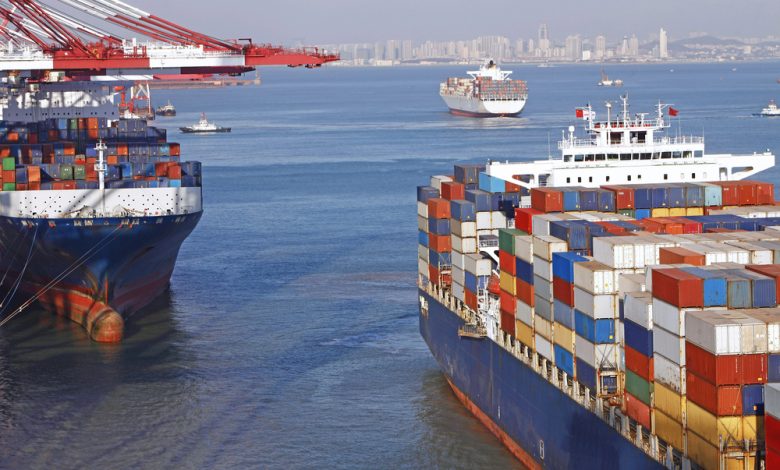
By Richard Kavanaugh:
Saurabh Saigal is from Uttar Pradesh India. He had a family he hadn’t seen in more than seven months. Saurabh was a crewman on the M/V Malaviya Twenty which was operating in the North Sea running supplies from Great Britain to the oil rigs operating in the region. During a routine inspection off Norfolk, England it was discovered that Saurabh and his 14 fellow crewmembers hadn’t been paid in months. Even when the crew did get paid, they were paid a mere $3.00 an hour. It took intervention by the International Transportation Workers Federation to free the crew from this modern-day slavery.
As shipping companies globally battle for business, seafarers from the most vulnerable nations are often targets to exploit. This isn’t a hard task as once the crew is on-board the ship, they are captive. These abuses are most common aboard the fishing fleets in the South China Sea where crewmen aboard fishing vessels are often beaten, sold from ship to ship, and sometimes simply thrown overboard.
China and the Philippines are the two largest providers of seafarers in the world. Though both groups are represented by national labor unions, their crewman are subjected to horrendous living conditions and wages that are the lowest in the world. Consider: the average salary for an Ordinary Seaman from the Philippines is just over $9,000 a year and one from China is paid a little over $12,000 a year. Often these crewmen go for months without pay with little to no recourse.
This is the result of unscrupulous shippers operating lawlessly in the worldwide shipping industry. While the shipping customer may get super-low shipping rates, it comes at a great cost – for the seafarers as well as for shipping safety, professionalism and even the environment.
This isn’t the case for American seafarers. American merchant mariners enjoy some of the highest wages in the world and the U.S. government protects them from dangerous, substandard living and working conditions. The Merchant Marine Act of 1920, often referred to as the Jones Act, outlines specific protections that ensure the safety and security of American merchant mariners as well as protections for our rivers and lakes.
The Jones Act does three things for the American Mariner.
First and foremost, the Jones Act protects the U.S. domestic shipping industry from predatory international shippers. It also outlines protections for cabotage or coastal trade. The Jones Act stipulates that trade conducted between U.S. ports must use U.S. built ships, owned by U.S. companies, registered in the U.S., and crewed by American mariners. This is not an uncommon stipulation. As a matter fact, according to the United Nations Commission on Trade and Development, all but 5 nations in the world have some form of cabotage regulations and 13 countries have regulations that completely limit domestic trade to a domestic fleet.
In our country, however, these rules aren’t just public pronouncements – we enforce them. Consequently, our merchant mariners are the most professional and the most skilled on the planet.
In America, the Jones Act protects U.S. mariners from rapacious foreign owned shipping companies and ensures that American seafarers don’t compete with what is ostensibly slave labor.
Second, the Jones Act provides protections for American merchant mariners by providing recourse and accountability. The Jones Act outlines seaman rights which include the right to sue ship-owners and operators for injuries incurred due to misconduct/negligence by the owner and/or Captain and safety and seaworthiness of the ship. These rights, including other protections regarding pay and working conditions stipulated in the broader Merchant Mariners Act provide a safety net for American mariners that far exceed the minimal protections provided by international standards.
Third, the Jones Act ensures that our nation’s waterways are traveled by well-built ships that meet American safety and environmental standards.
Besides protecting the jobs and safety of U.S. Merchant Mariners, the Jones Act also protects a vital capability: the capability of our nation to build and operate a shipping fleet free from foreign influence and one able to buttress our military when needed.
The Jones Act contributes to higher domestic shipping costs in the same way that American laws protecting workers and the environment in the US make domestic manufacturing cost more than using slave laborers in intolerable conditions in China.
When advocates for the simple repeal of the Jones Act note that opening cabotage to international competition would drive down costs of goods to consumers they don’t acknowledge the global and domestic consequences. If the Jones Act is repealed U.S. Merchant Mariners’ wages would drop dramatically or the companies they work for would go out of business altogether. American shippers would soon be driven from the U.S. market as well as the global market and with that would go the safety and environmental standards along with the legal protections enjoyed by U.S. merchant mariners today. Instead of using highly trained professional seafarers, products might arrive using the seafaring equivalent of Chinese indentured labor.
Just to be clear, the U.S. shipping industry is not the only beneficiary of the Jones Act. America benefits as well. U.S. built and operated ships are regulated by the United States Coast Guard and monitored by the American Bureau of Shipping Classification Society. This ensures the protection of our country’s maritime transportation system as well as safeguards the environment.
Foreign flagged vessels, are just not required to operate ships built to U.S. ship-building standards, nor are they required to adhere to all the stringent environmental and safety standard required of U.S. operated-ships.
Ironically, if the U.S. were to pass a law that required foreign-owned and operated ships to meet U.S. safety and environmental standards in order to conduct domestic trade, most of the foreign companies would likely opt out of the U.S. market because they couldn’t offer any competitive price advantages.
Critics of the Jones Act overlook the reality and instead claim that America would benefit if any shipper anywhere on the globe could offer domestic shipping services here. Evaluating the efficacy of the Jones Act on cost saving alone is shortsighted and risky.
Too many foreign companies are willing to simply underbid the competition in order to get business. Why? Because they can. They face no sanctions – not for hiring lesser or untrained mariners, subjecting their crews to substandard working conditions, paying slave labor wages and operating ships that barely meet international safety standards all while creating environmental mayhem along the way.
The Jones Act protects the U.S. merchant marine system from international abuse. Instead of lowering the standards here in America and risking the related consequences, we should advocate that the rest of the world adopt our standards.





Leave a Reply
Thank you for your response.
Please verify that you are not a robot.